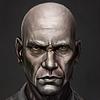You need to sign in or sign up before continuing.
Take a photo of a barcode or cover
adventurous
challenging
emotional
hopeful
mysterious
reflective
sad
medium-paced
Plot or Character Driven:
A mix
Strong character development:
Complicated
Loveable characters:
Complicated
Diverse cast of characters:
Yes
Flaws of characters a main focus:
Yes
adventurous
dark
slow-paced
Plot or Character Driven:
A mix
Strong character development:
Complicated
Loveable characters:
Complicated
Diverse cast of characters:
No
Flaws of characters a main focus:
Yes
adventurous
dark
reflective
sad
slow-paced
Plot or Character Driven:
A mix
Strong character development:
Yes
Loveable characters:
Complicated
Flaws of characters a main focus:
Yes
adventurous
dark
slow-paced
Plot or Character Driven:
A mix
Strong character development:
No
Loveable characters:
Complicated
Diverse cast of characters:
N/A
Flaws of characters a main focus:
Yes
Graphic: Rape
I enjoyed the book. It’s hard to summarize my thoughts on it, as I’m still mulling it over a few days later. However, that’s a good thing in itself: it’s certainly thought provoking. As many have pointed out, Thomas himself is not a likable character (and often even detestable). However, he is an interesting character. His flaws and harmful actions are important to the story, and highlight the heroism of many of the supporting characters. Still, I understand why many readers are put off by him. He’s even less likable than more typical anti-hero types. For me though, choosing such a character as the protagonist allows Donaldson to tell a very different and interesting spin on a heroic fantasy epic.
If you want to read an isekai with a leper, I think this is the only one.
Hard to rate. I did not understand the main character, but the beauty of the prose carried me through.
Hard to rate. I did not understand the main character, but the beauty of the prose carried me through.
There are certain books that change the course of fantasy forever. Lord Foul's Bane is one of them. This is one of the first books that I think really established a foundation for what I call "realistic fantasy." First, the main character has leprosy. Second, he is taken to a fantasy world and cannot accept that it is anything other than a dream (thus, Thomas Covenant the Unbeliever). The characters are real, complete with flaws, and they make mistakes that can have long-term consequences. It's wonderfully written with characters you love and love to hate. Highly recommended!
dark
emotional
medium-paced
Plot or Character Driven:
Character
Strong character development:
Complicated
Loveable characters:
No
Diverse cast of characters:
Yes
Flaws of characters a main focus:
Yes
This book is a clever, innovative idea bursting with potential, matched with a slightly disappointing telling. But first some background.
I came to this novel a massive fan of two other Stephen Donaldson series - Mordant's Need and The Gap Cycle - but somehow, even though I own both of the first two trilogies of the Thomas Covenant Chronicles, I hadn't read them. Well, I think I hadn't. I have a vague idea that I MAY have read the first book many years ago but as I went through it this time, there were no memories at all so no impression was left.
So I've wanted to read this for some time, as the author's career-making work.
And the concept is pretty interesting to start with. A man who is asleep HERE while he is alive THERE (The Land). And SO alive... no longer a leper there, able to feel and exist and excel.
Along with the attractiveness of those contrasts, I'm a sucker for portal fiction... stories like Edgar Rice Burroughs Barsoom series (John Carter of Mars), Narnia, Gor... in which the protagonists find themselves thrust into a whole new world by some usually unexplained plot device. But this adds several more creative strands: (1) When he's asleep here, he's alive there (and vice versa) and; (2) Is this really happening or is it all just a dream?
I don't know of Donaldson was the first to explore those angles but he's one of the first I'm aware of, and I thoroughly enjoyed books like Stephen King's Talisman (that's a 10 out of 10) and even Donaldson's Mordant's Need that revisited those ideas. As it turns out, I've liked a lot of TV shows and movies that follow the "Is this real, or am I dreaming it all" idea (Life on Mars for example).
So all of the right elements are there, my wish for it to be as great as his other series I've read is in place, and this should be a perfect book for me. And I'm still giving it 7 out of 10, but the bits I didn't like, I didn't like a LOT.
Start with the thing I hated most. The Journey. You can only read so much fantasy before the Hero's (physical) Journey from A to B seems ... on the road to Mirkwood, or Mordor, or the fields of Shannara, or whatever the place was in the Dragonbone Chair... begins to feel pretty bloody familiar, and like an excuse to pad a story with a few Chekovian obstacles, some pretty scenery, some drip-fed exposition and a chance to encounter the bad things. These elements weren't horribly handled here, but I felt it was all pretty been-there-read-that.
Secondly, Covenant's disbelief. It's hard to believe, I get that, but at some point surely you'd give in to the welcome alternative of having a fully functioning body and being slightly worshipped by the folks of the Land. I know it's pointless to use real dreams as a measure for how Covenant should or shouldn't have reacted, but I'll say this anyway. I've had dreams where my family members have been replaced with newcomers, where I work somewhere I've never been before, we're I'm good at stuff I'm lousy at... and you accept it unquestioningly. Cos it's a dream, and that's how dreams run. Granted some seem to run a LONG time but surely the longer this one ran, and the more Covenant was able to even ask "is this a dream" he'd eventually reflect on how you don't ask that in a dream? Not looking to be the fact check police here, but it seems unrealistic that he wouldn't at some point succumb to the seductiveness of his new reality.
Thirdly, [spoilers] the rape. They say you can't do anything under hypnosis that you wouldn't do normally, it just allows you an excuse to feel less inhibited. And this isn't even hypnosis, so surely it's even less likely you'd behave so incredibly out of character? Or is the suggestion that this potential was always in Covenants character? I don't know. It's a clever tool used by writers often to great effect... show our protagonist doing something horrible then see if you can make the readers/audience like him (see shows like The Shield, Dexter, The Sopranos) but it tends to work better when you see it as part of the characters basic ingredients to start with.
The rape subplot was used in "The Stars my destination" (unconvincingly for mine) and in the Gap Cycle, also by Donaldson (and very well I felt as it showed a gradual recognition of what he'd done by a very flawed and loathsome character who works to improve). None of these depictions make the act acceptable however in Lord Foul's Bane it just seemed absolutely out of the blue, out of character and just an unintegrated device used by the author to give Covenant an act to redeem and a journey of discovery and improvement.
So... those bits to one side. I liked a lot of this book a lot and I'm hopeful the series improves as it goes. The world loved these books so I don't mind conceding my issues with it may be uncommon. As one of his earliest works, maybe Donaldson had to get this on paper before he could graduate to his other works that I've loved. It IS a good book even if the journey part left me praying for a balrog or a sudden gust of wind to flick the pages.
4 out of 5 stars (or 7 out of 10 if that were possible).
I came to this novel a massive fan of two other Stephen Donaldson series - Mordant's Need and The Gap Cycle - but somehow, even though I own both of the first two trilogies of the Thomas Covenant Chronicles, I hadn't read them. Well, I think I hadn't. I have a vague idea that I MAY have read the first book many years ago but as I went through it this time, there were no memories at all so no impression was left.
So I've wanted to read this for some time, as the author's career-making work.
And the concept is pretty interesting to start with. A man who is asleep HERE while he is alive THERE (The Land). And SO alive... no longer a leper there, able to feel and exist and excel.
Along with the attractiveness of those contrasts, I'm a sucker for portal fiction... stories like Edgar Rice Burroughs Barsoom series (John Carter of Mars), Narnia, Gor... in which the protagonists find themselves thrust into a whole new world by some usually unexplained plot device. But this adds several more creative strands: (1) When he's asleep here, he's alive there (and vice versa) and; (2) Is this really happening or is it all just a dream?
I don't know of Donaldson was the first to explore those angles but he's one of the first I'm aware of, and I thoroughly enjoyed books like Stephen King's Talisman (that's a 10 out of 10) and even Donaldson's Mordant's Need that revisited those ideas. As it turns out, I've liked a lot of TV shows and movies that follow the "Is this real, or am I dreaming it all" idea (Life on Mars for example).
So all of the right elements are there, my wish for it to be as great as his other series I've read is in place, and this should be a perfect book for me. And I'm still giving it 7 out of 10, but the bits I didn't like, I didn't like a LOT.
Start with the thing I hated most. The Journey. You can only read so much fantasy before the Hero's (physical) Journey from A to B seems ... on the road to Mirkwood, or Mordor, or the fields of Shannara, or whatever the place was in the Dragonbone Chair... begins to feel pretty bloody familiar, and like an excuse to pad a story with a few Chekovian obstacles, some pretty scenery, some drip-fed exposition and a chance to encounter the bad things. These elements weren't horribly handled here, but I felt it was all pretty been-there-read-that.
Secondly, Covenant's disbelief. It's hard to believe, I get that, but at some point surely you'd give in to the welcome alternative of having a fully functioning body and being slightly worshipped by the folks of the Land. I know it's pointless to use real dreams as a measure for how Covenant should or shouldn't have reacted, but I'll say this anyway. I've had dreams where my family members have been replaced with newcomers, where I work somewhere I've never been before, we're I'm good at stuff I'm lousy at... and you accept it unquestioningly. Cos it's a dream, and that's how dreams run. Granted some seem to run a LONG time but surely the longer this one ran, and the more Covenant was able to even ask "is this a dream" he'd eventually reflect on how you don't ask that in a dream? Not looking to be the fact check police here, but it seems unrealistic that he wouldn't at some point succumb to the seductiveness of his new reality.
Thirdly, [spoilers] the rape. They say you can't do anything under hypnosis that you wouldn't do normally, it just allows you an excuse to feel less inhibited. And this isn't even hypnosis, so surely it's even less likely you'd behave so incredibly out of character? Or is the suggestion that this potential was always in Covenants character? I don't know. It's a clever tool used by writers often to great effect... show our protagonist doing something horrible then see if you can make the readers/audience like him (see shows like The Shield, Dexter, The Sopranos) but it tends to work better when you see it as part of the characters basic ingredients to start with.
The rape subplot was used in "The Stars my destination" (unconvincingly for mine) and in the Gap Cycle, also by Donaldson (and very well I felt as it showed a gradual recognition of what he'd done by a very flawed and loathsome character who works to improve). None of these depictions make the act acceptable however in Lord Foul's Bane it just seemed absolutely out of the blue, out of character and just an unintegrated device used by the author to give Covenant an act to redeem and a journey of discovery and improvement.
So... those bits to one side. I liked a lot of this book a lot and I'm hopeful the series improves as it goes. The world loved these books so I don't mind conceding my issues with it may be uncommon. As one of his earliest works, maybe Donaldson had to get this on paper before he could graduate to his other works that I've loved. It IS a good book even if the journey part left me praying for a balrog or a sudden gust of wind to flick the pages.
4 out of 5 stars (or 7 out of 10 if that were possible).
I thought I might be the one person I know to appreciate this, since I'm perfectly happy to read books about whiny jerks. But I wasn't prepared for the giant stretches of nothing happening. Travel to a place... talk a lot... travel to another place. Maybe that's the way of epic fantasy, but it didn't have any payoff for me. Ideas without feeling. I might be the only person who would have prefered *more* whining.




